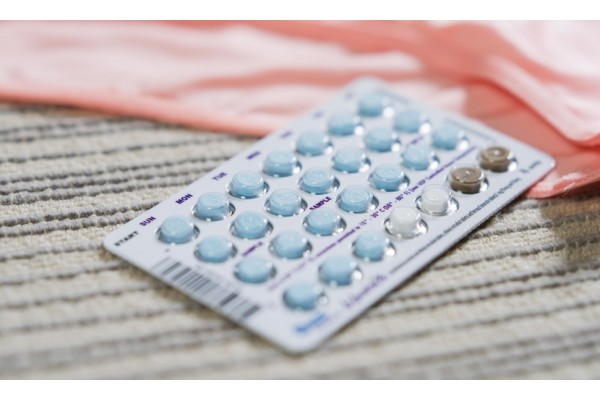7 Side Effects Of Hormonal Birth Control Nobody Told You About
April 30, 2018
Source: drugdu
 854
854

A few months after I started using the ring, a form of hormonal birth control that goes inside your vagina and gets replaced each month, a friend told me that I looked "bustier." I was a bit alarmed by her directness, but I think she was right: I wear slightly smaller bras now that I'm off it. When I first went on the ring, all my doctor told me about it was that it could increase my risk for blood clots. What else, I wondered, are doctors not telling us about the potential side effects of hormonal birth control?
"Hormonal methods of birth control cause certain side effects due to their influence on your body’s chemistry," Ann Mullen, Director of Health Education at Cycle Technologies, tells Bustle. "These methods include the pill, the ring, the hormonal IUD, the implant (in your arm), and the birth control shot. The body’s natural response to the synthetic hormones can be similar to when you are pregnant, so you might feel nausea, bloating, or swollen or tender breasts. Other side effects include headache or migraine, break-through bleeding, loss of periods, and mood swings."
To be clear, this doesn't mean you are likely to experience these side effects after going on birth control. But if you do notice any of them after you start, there could be a connection there, and it's worth talking to your doctor if you don't like the effects you're experiencing or notice anything out of the ordinary. Here are a few possible side effects of hormonal birth control that you may not have been told about.
Pain During Sex
Dr. Rachel Gelman, DPT, PT, a physical therapist at the Pelvic Health and Rehabilitation Center, tells Bustle she's had clients who experienced pain during sex after going on hormonal birth control. "Oral contraceptives (OCPs) cause an increase in a protein called Sex Hormone Binding Globulin (SHBG)," she says. "This protein picks up testosterone and makes it inactive. The vaginal opening depends on testosterone to keep it happy and healthy. So the pill leads to decreased testosterone levels which means the tissue at the vaginal opening is no longer getting what it needs and this can lead to pain and dyspareunia (pain with sex). OCPs impact estrogen levels as well and the vulvar tissue is dependent on that hormone as well."
Depression
The research over whether hormonal birth control leads to depression is mixed, so it may not be something you were warned about. However, Kara Manglani, CNM, midwife and founder of The Fertile Times, says some people report sadness or depression after going on hormonal birth control. Some experience these feelings right before their periods in particular.
Vaginal Dryness
Sometimes, birth control can decrease the amount of vaginal lubrication you produce when you get aroused, says Manglani. "You may find it more comfortable to utilize a lubricant during intercourse." Some also find thathormonal birth control decreases their sex drive, she says, which could in turn decrease vaginal lubrication.
Dry Eye
It seems random, but the hormonal changes birth control causes can lead tochanges in tear production, Morgan Statt, Health & Safety Investigator atConsumerSafety.org, tells Bustle. As a result, you might develop a condition called dry eye, which can lead to eye pain and light sensitivity. There's alsosome research suggesting that birth control could increase your risk for glaucoma, an eye condition that can lead to impaired vision or blindness, though your risk still likely won't be significant.
Hair Loss
"If you're especially sensitive to the hormones in oral contraceptives or have a family history of hair loss, you may experience this side effect while on the pill," Statt says. "Our hair goes through cycles of growth and stagnant transitional periods where no hair is growing at all. Hormonal birth control can trigger this non-growth part of the cycle and contribute to hair loss in the process." So, if you notice yourself losing more hair in the shower than usual (or losing hair outside the shower), your birth control might be to blame.
Read more on
- Driven by drugs for lowering blood sugar and losing weight, the export value of Chinese Western medicine preparations has reached a record high February 2, 2026
- Chengdu Pioneer and Kangzhe Pharmaceutical have reached a cooperation agreement to leverage the DEL and HAILO platforms to empower the development of multi-target innovative drugs February 2, 2026
- J&J’s subcutaneous monoclonal antibody combination therapy receives further FDA approval; Autoimmune CAR-T therapy granted FDA Breakthrough Therapy Designation February 2, 2026
- Why is the development of AI-based antiviral drugs a niche field yet a necessity? February 1, 2026
- Pakistan issues final antidumping ruling on Chinese cephalosporin February 1, 2026
your submission has already been received.
OK
Subscribe
Please enter a valid Email address!
Submit
The most relevant industry news & insight will be sent to you every two weeks.



